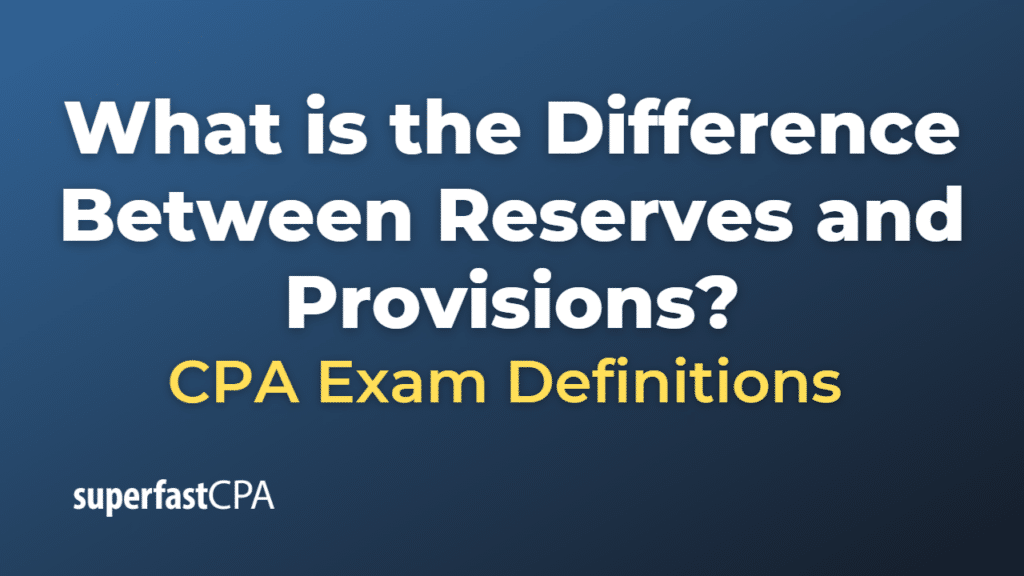Difference Between Reserves and Provisions
Reserves and provisions are two important terms used in accounting and financial reporting, and they both involve setting aside money for future needs. However, they are used for different purposes and are treated differently in financial statements.
- Reserves:Reserves are funds set aside from profits (retained earnings) for a specific purpose or for general future needs. They are used to strengthen the financial position of the company or prepare for future planned expenses. For example, a company may create a reserve for business expansion, equipment replacement, or as a contingency against future uncertainties. Reserves can be freely used by the company and are considered part of the company’s profit.There are two main types of reserves: revenue reserves, which can be distributed as dividends, and capital reserves, which generally cannot be distributed as dividends and often originate from profits from non-operating activities.
- Provisions:Provisions, on the other hand, are amounts set aside to cover a likely future liability or reduction in the value of an asset whose exact amount is uncertain but can be estimated with reasonable accuracy. Provisions are recognized as liabilities on the balance sheet.Examples of provisions include allowance for bad debts (uncollectible accounts receivable), provision for warranties (where a company expects to pay for repairs or replacements under warranty), or provision for income taxes (where the company expects to pay taxes on its income).The creation of provisions is governed by the principle of conservatism in accounting, which states that potential losses should be recorded as soon as they are expected, while potential gains should only be recorded when they are realized.
In summary, while both reserves and provisions are set aside for future needs, reserves are generally created out of profits and used at the company’s discretion, whereas provisions are created in anticipation of specific future liabilities or losses.
Example of the Difference Between Reserves and Provisions
Let’s consider hypothetical examples to illustrate the difference between reserves and provisions:
Example of Reserves:
AutoCorp, a car manufacturing company, has had a profitable year and decides to retain part of its net income for future use. It sets aside $1 million as a reserve for Research & Development (R&D) to invest in the development of a new electric vehicle model.
This reserve does not represent an immediate expense or liability but is a way for AutoCorp to earmark part of its profits for a specific future purpose. If, in the next year, AutoCorp decides not to proceed with the R&D project, it can reallocate the reserve to another purpose or distribute it as dividends.
Example of Provisions:
Now consider Gadget Inc., a company that sells electronic devices and offers a one-year warranty on its products. Based on past experiences, Gadget Inc. estimates that 2% of its sold products will be returned for repair or replacement under warranty.
Suppose Gadget Inc. sold $5 million worth of products this year. Anticipating the warranty claims, it creates a provision for warranties of $100,000 (2% of $5 million). This provision is recorded as an expense on the income statement and as a liability on the balance sheet.
The $100,000 provision represents an anticipated future outflow related to sales already made. As actual warranty claims arise, they will be charged against this provision.
In these examples, AutoCorp’s reserve represents retained profits allocated for a future purpose, while Gadget Inc.’s provision represents an anticipated future liability related to current sales.













